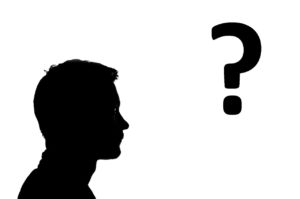 If you expect someone to be guilty, does that make them more likely to be?
If you expect someone to be guilty, does that make them more likely to be?
As discussed last week, many implicit biases complicate the process of determining guilt or detecting deception during an interview process. In a comprehensive trio of 2008 studies, a team of psychologists from the University of Aberdeen, United Kingdom found that expectations of guilt have a profound predictive effect on whether or not the interviewer will conclude that their subject is guilty.
Certainly, this has troubling implications on our ability to trust judgment and confront our own cognitive biases. Last week’s blog reviewed the significant impact of other sorts of biases, and these findings further complicate the matter.
Their 2008 paper compiled the results of three studies. In the first, participants were asked to act as interviewers and randomly assigned to either a guilt-expectation or innocence-expectation, which involved priming them to believe that the interviewee was more or less likely to be lying. They were then tasked with rating how confident they were about the interviewee’s guilt or innocence following a brief interview.
From this first study, the results gave clear evidence that expectations of guilt made conclusions of guilt much more likely, as well as driving a more combative “guilt-presumptive” questioning style. The study authors attribute this to the well-known phenomenon of “confirmation bias” wherein our brains tend to emphasize evidence that conforms to our expectations.
The study authors emphasize the importance of their findings on actual law enforcement practices. Many crime-related interviews are conducted when a (often reasonable) suspicion of guilt already exists, and the goal is often more about obtaining a confession than assessing guilt.
The second study varied slightly by actually recruiting participants as interviewees and subjecting them to accusations of guilt, after either assigning them to an actually guilt condition or not. In this case, rates of confession were tracked. Interestingly, presumptions of guilt did not seem to increase the likelihood of securing a confession, though actual guilt did make confessions more likely.
Finally, the third study exposed participants to recordings of previous studies’ interrogations. However, they were not told if the given interview was primed as a guilt-expectation or an actual guilty situation. Instead, they were simply asked to evaluate whether the recorded interviewee was guilty based on their behavior and tone of voice.
Fascinatingly, they found that the chief predictor of evaluations in the third study was the interviewer’s style. Suspects who responded to guilt-presumptive styles were rated as more defensive, more nervous, and more likely to be guilty, regardless of their guilt.
In sum, the first study found that interviewers are more likely to conclude guilt, if they expect it, and this was expanded by the third study’s conclusions that interviewer style contributes to other witness’ perceptions of the interviewee’s guilt. Finally, the second study, while challenging the notion that aggressive interviewing would secure confessions, found that only guilty participants were particularly likely to confess.
There are many ways to deduce whether somebody is lying during an interview process, but it is important that we critically evaluate how we are trying to detect deception. Over the last two weeks, we have outlined some common biases, such as confirmation bias, and this is exactly why having an observational process based on scanning, identifying, interpreting, and evaluating can be beneficial in any interaction.
This is precisely what we teach in our detection deception workshops, as well as in our new Reading People program.